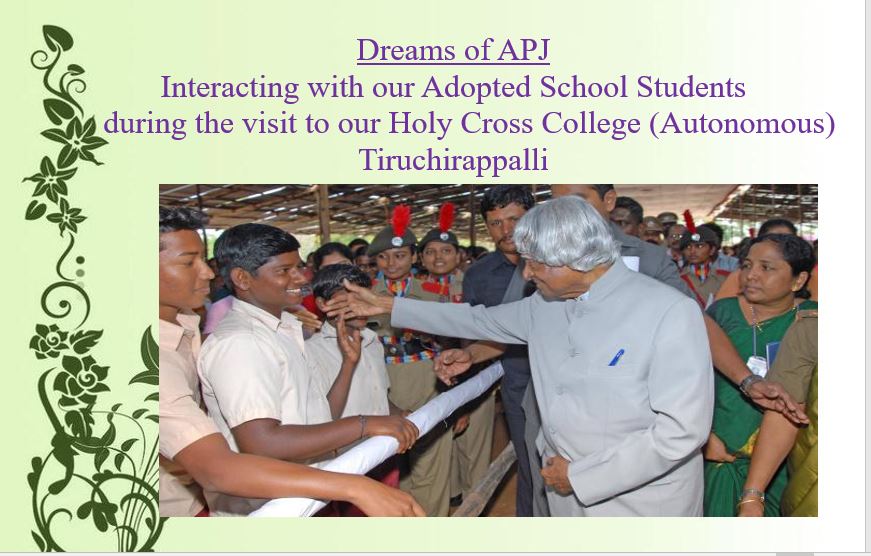An Overview

The college strives to create social consciousness and prepare students who would be socially responsible young Women leaders responding to the need of the society. Keeping with the vision and mission of the College, a useful extension programme RESCAPES was adopted by the college.
1.RESCAPES:
Rural Enrichment through Students Community Action and Participation for Environmental Sustainability (RESCAPES) - a well-structured programme, integrated into the curriculum, running for all the 3 academic years of UG programme, with specific evaluation system carrying credits. The RESCAPES activity has been made mandatory for PG.
The programme is built in, to provide skills and opportunities for students to do things differently and achieve optimum benefits for their own development and for the welfare of the rural community. This Community Development course is designed not to be a standalone programme but is also integrated into the academic programme for personal development of the students.
2.ORIGIN:
The Community Extension Programme RESCAPES emerged out of an interaction with experts in the International Conference on Sustainable Development and Management of Natural Resources held from 15th - 17th March 2003 at Holy Cross College (Autonomous) Tiruchirappalli. Experts’ recommendations were focused on the conservation of ecosystem and their sustainability in India. This spark ignited the launching of the RESCAPES programme in 2004 (06.07.2004).
The primary stakeholders of this extension activity are the entire UG student community. The secondary stakeholders are the 16 (increased to 24 villages) selected village communities. To assist students, teaching faculty were provided with input on how to make benchmark survey, problem identification, and micro level planning by experts from different NGO’s. Each department is allotted one village and action plan for the respective villages is carried out and recorded. Having environmental sustainability, the bench mark survey and need analysis in mind, a set of projects are identified and categorized as core projects, non-core projects and discipline oriented specific projects. Since 2004, various kinds of activities have been carried out in all the adopted villages.
Through RESCAPES Training Programmes for Self Help Groups members in vermicompost, Panchakaviya and mushroom cultivation were arranged in selected villages. Awareness cum skill training programmes for students and teaching faculty on the above mentioned projects for the effective implementation of the projects were also arranged.
The Department of Science & Technology funded one major Research project for Rs.5,25,000/- and three UGC Minor Research Projects for Rs.1,00,000/- , Rs.90,000/- & Rs.60,000/- respectively, which was attributed to the Incorporation of Research into RESCAPES programme.
3.FUNCTIONAL ORGANIZATION:
The RESCAPES programme is co-ordinated by a full time co-coordinator who bridges among the villagers, authorities and the college. A core committee constituted by selected faculty members with external expert co-ordinates the whole process.
RESCAPES converges with NGOs and Government Organizations that plays a complementary role for the effective implementation of the projects for the benefit of the village community.
ADMINISTRATIVE STAFF FLOW CHART

4.SPECIFIC OUTCOME OF RESCAPES PROGRAMME
Students
are made aware of Self and have an opportunity to improve Self esteem and Emotional Intelligence
develop project specific knowledge and skills
are sensitized about sustainable development
are exposed to rural community and the problem faced by them
are enriched with creativity in planning execution and documentation
develop leadership skills and team spirit.
Village community becomes
Self –reliant
Economically developed
Environmentally & Socially improved
5.UNIQUENESS:
The RESCAPES programme is
institutionalized and inbuilt in the academic curriculum.
involves the entire UG & PG student community and teaching faculty.
has periodical reviewing & updating of the entire programme
integrates the activities of Service Oriented Courses viz., NSS, NCC, RED CROSS to UGC funded
major and minor research Project.
exhibits improved self awareness, self esteem and Emotional Intelligence.
6.NEED and SCOPE:
One of the major goals of our college is “To awaken social consciousness and prepare socially responsible citizens”.
The College is continuously undertaking innovative and sustained activities to achieve this goal.
The College has several service wings which provide the students hands on information which has highlighted the fact that there has been an overall decline in the quality of the environment in the villages, making them unsustainable for the livelihood of the common rural mass.
To remedy this situation, the College has planned the RESCAPES project to rejuvenate the rural environment and create sustainable livelihood for the people residing in the villages. Several recommendations were made for the conservation of the ecosystem particularly in India.
In order to equip the students to achieve this goal, the College had invited experts to conduct field visits, workshops and seminars to develop a comprehensive and sustained Action Plan to address a variety of issues relating to Students, Civil society and Community Service.
Following this effort, a comprehensive package for Capacity Building and Community Development of the Students in their 3 year Under Graduate Programme was developed.
7.OBJECTVES:
To awaken Social Consciousness and prepare socially responsible citizens
To impart skills and knowledge
To encourage creativity in students bringing out their latent talents
To build genuine human relationships
To inculcate concern and respect for persons and nature
To enable the students to get exposed to rural community
To be a link between the Government authority and village community
To enable the village community to become self-reliant
To enable the village community to sustain their eco system.
8.MAP OF THE RESCAPES ADOPTED VILLAGES AND PANCHYAT:

9.LIST OF ADOPTED VILLAGES:
The list of 24 villages in Manachanallur Block adopted by the College and the departments allotted are listed below:

